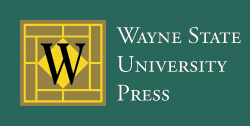Abstract
This article explores the representation of mixed-race bodies in Brian Castro’s fiction. In Colonial Desire: Hybridity in Theory, Culture and Race (1995), Robert Young demonstrates the deep anxieties caused by the existence of mixed-race individuals in colonial contexts. Miscegenation threatened the clear racial separation required by colonial domination and reveals, as Patrick Wolfe underlines, “the points at which racial classifications most conspicuously come undone” (“Land, Labor, and Difference,” 867). All of Brian Castro’s novels feature mixed-race characters, and several part-Chinese or part-Indigenous characters are main protagonists. Avoiding the binary distinction between happy and tragic hybrids, his novels engage with colonial and contemporary representations of mixed-race individuals and play with the threat to racial and cultural purity posed by hybridity. Castro’s representation of the mixed-race body is characterized by a particular set of images, metaphors, and modes of representation, which underline the essential impact of the white gaze on racialized others and dramatize the racial ambiguity of mixed-race corporality through images of monstrosity and disability. Castro engages with racist discourse by exaggerating and amplifying its postulates, thus denouncing the absurdity of racial classification and the very concept of race.
Recommended Citation
Brun, Marilyne
(2020)
"Mixed-Race Corporality in Brian Castro’s Fiction,"
Antipodes: Vol. 34:
Iss.
1, Article 7.
Available at:
https://digitalcommons.wayne.edu/antipodes/vol34/iss1/7
